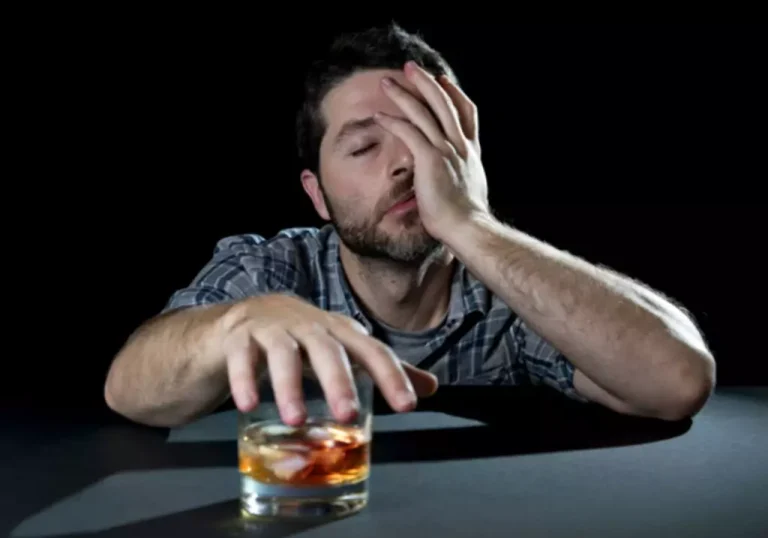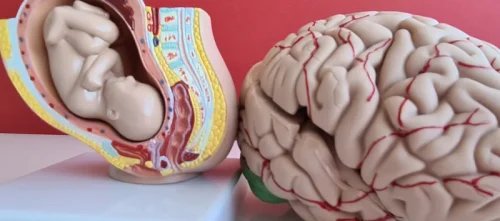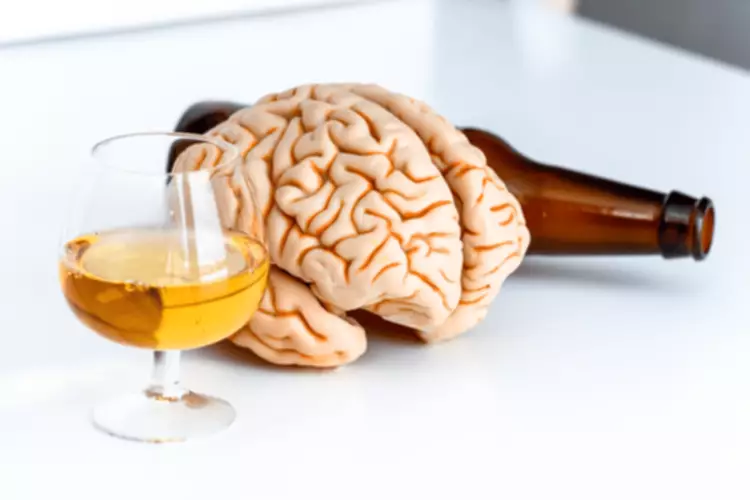The Missing Piece: The Spiritual Malady Residential Recovery Program Addiction Transitional Sober Living Home

Although the disease has biological, behavioral, and psychological roots, treating those aspects, without including the spiritual component, is like sticking a Band-Aid on a bullet wound. The practice of Christian Meditation offers a remedy to the spiritual malady. When we enter the silence with discipline and perseverance, we make space for the living presence of God to heal us from the inside out. 1It is important to note that some negative cognitions may reflect objective appraisals of a negative situation, such as likelihood of recurrent exposure. At Time 1, participants reported levels of psychological distress using the PTSD Checklist-Civilian (PCL; Blanchard, Jones-Alexander, Buckley, & Forneris, 1996), a widely used self-report measure that corresponds with diagnostic criteria for PTSD.
Practical Ways to Improve Spiritual Life Daily
- While an addict’s spiritual malady triggers a compulsive need to use drugs, other people’s spiritual conflicts may take the form of a gambling problem, anxiety, depression, or eating disorder.
- This complacency can then lead to a sense of entitlement which is extremely dangerous for people in recovery.
- Acts of service not only benefit others but also contribute to our own spiritual growth.
- A spiritual malady, then, reduces to a sense of otherness felt by many alcoholics that prevents them from feeling at peace with themselves and the world around them.
- Finally, self-reliance can be dangerous because it can lead to complacency.
These therapies can get to the underlying emotional issues that often lead to that first drink or drug. Another way to address the spiritual malady and heal in Glenwood Springs is to connect to some of its amazing recovery communities. This includes 12-Step communities that offer meetings that can help people discover what spirituality means to them. There is also a vibrant recovery community in the nearby urban hub of Denver.
Finding the Right Support System
In fact, the world’s threat load is extremely high and it, too, is being reflected in systemic dysfunction. We are in a time where we need to proactively decrease threat and increase safety in the world. Most of us hate to deal with negative thoughts or emotions—it just doesn’t feel good. These are our thought suppressions and emotional repressions that also bias the system towards threat physiology. One is a mobilization response to threat where we can prejudge, react, attack, argue, criticize, blame, and experience interpersonal disconnections. The other threat phenotype is one of relative immobilization where we retreat, ruminate, isolate, dissociate and experience bodily and spiritual disconnections.
The spiritual malady and addiction
Practicing prayer and meditation helps us be mindful of our surroundings and gain consciousness of our spirituality by bringing us closer to our higher power. Strengthening this relationship with a spiritual being brought us hope that we can recover from the mental and physical suffering of alcoholism. When left unresolved, a spiritual malady will continue to lead to restlessness, irritability, and discontentment.

Take Your First Step To Recovery
Addressing selfishness, self-centeredness, and self pity is crucial for overcoming spiritual malady. By fostering empathy and meaningful connections, we can break free from the isolation and find a path to recovery. Recognizing this mental obsession as a symptom of spiritual malady is important for addressing the root cause of addiction. By focusing on spiritual healing, we can begin to alleviate this mental compulsion and find peace.
Stay Positive and Drink Less With Reframe!

While AA promises that the Higher Power can “restore us to sanity” when “the spiritual malady is overcome,” we’re never entirely free. The potential of getting off track if we stop going to meetings or “working the Steps” is always looming in the background, fostering a new type of dependence and sometimes becoming a self-fulfilling prophecy. Granted, it’s better to be dependent on a self-help group instead of on an addictive substance, but for some, it can feel like being stuck in permanent limbo. That said, for many, it’s ultimately not satisfying to simply call the problem a “spiritual malady” and call it a day. The “spiritual problem,” in turn, calls for a “spiritual solution.” And in AA, that spiritual solution is the Higher Power.
Critics argue that the term “spiritual malady” might miss the scientific nuances of addiction, which include brain chemistry alterations and cognitive distortions. Also, the concept can be seen as judgmental, focusing too much on personal flaws and moral failings as root causes of addiction. When you ask them to describe what they mean by that statement, they seem to have a firm grasp on the fact that we alcoholics suffer from “an allergy of the body and an obsession of the mind” — that once I put spiritual malady any alcohol in my system whatsoever it sets off a craving for more alcohol. When you ask them to describe what they mean by that statement, they seem to have a firm grasp on the fact that we alcoholics suffer from “an allergy of the body and an obsession of the mind” — that once I put any alcohol in my system whatsoever it sets off a craving for more alcohol. The present findings suggest that trauma exposure results in PTSD symptoms in part through the negative cognitions of spiritual struggle.
The Spiritual Malady of Addiction: What Is It Exactly?
We must live our lives selflessly and show our gratitude to a higher power for the lives that we live and the opportunity to have a second chance at life. The thoughts we have as alcoholics are often insidious in such a way that we can’t tell what is true or false.The AA Big Booktalks about this delusion we develop in active addiction. Thoughts like we can eventually manage our lives while in active addiction. Unlike normal people (whatever that means) alcoholics are unsettled to the core. After reading ‘The Doctor’s Opinion,’ ‘Bill’s Story,’ and ‘There is a Solution,’ in the Big Book of Alcoholics Anonymous,we came to an understanding that we have no control whatsoever over alcohol or drugs.
- Also, threats come from physical traumas—attacks, assaults, accidents, or abuse—lions, tigers, bears, oh my!
- As Founder and Executive Director of the 501(c)3 nonprofit, Recovered On Purpose, and Managing Partner of Behavioral Health Partners, Adam has helped thousands find freedom from addiction all over the world.
- Among the mechanisms that may predict PTSD symptoms is spiritual struggle, a set of negative religious cognitions related to understanding or responding to stressful events.
- Clinicians working with trauma victims should be aware of the possible relevance of spiritual struggle in clients’ interpretation of the event and subsequent recovery.
- By recognizing and confronting this spiritual disease, we can begin to heal and reclaim our lives from the grip of addiction.
- Grasping the way spiritual malady drives addiction is vital to break this cycle.
Among the mechanisms that may predict PTSD symptoms is spiritual struggle, a set of negative religious cognitions related to understanding or responding to stressful events. Although prominent theories emphasize cognitive factors in the development and maintenance of PTSD symptoms, they have not explicitly addressed spiritual struggle. The present prospective study tested the role of spiritual struggle in the development and maintenance of PTSD symptoms following trauma. We assessed exposure to trauma and non-trauma events during the first year of college, spiritual struggle due to the most stressful event, and PTSD symptoms resulting from the index event.
Relinquishing control to a higher power is a fundamental step in overcoming addiction. In the 12-Step Program, this surrender is crucial for acknowledging our inability to overcome addiction on our own. By surrendering our ego and self-will, we open ourselves to the guidance and support needed to navigate the recovery journey. This total surrender of one’s ego is essential for finding relief from the burdens of addiction. Physical threats come in the forms of things like infections – prions, viruses, bacteria, protozoa, and mycelia, or things like toxins—pollutants, pesticides, radiation, medications, and substances of addiction. Also, threats come from physical traumas—attacks, assaults, accidents, or abuse—lions, tigers, bears, oh my!
-
Posts recentes
- Best Us Online casino real money casino mobile Invited Incentives Basic Deposit Added bonus
- Multiple Diamond Video slot by the IGT rocky 80 free spins Enjoy On line 100percent free
- Happy Larry’s Lobstermania step three Position opinion from mecca bingo casino IGT
- Gambling enterprise Greeting 3$ deposit casino Incentive 2024 Finest Greeting Extra Gambling enterprise
- Greatest Real cash Slot Applications casino frank free spins 2024 Top Video slot Apps inside United states
Comentários
Arquivos
- setembro 2024
- agosto 2024
- julho 2024
- junho 2024
- maio 2024
- abril 2024
- fevereiro 2024
- janeiro 2024
- dezembro 2023
- outubro 2023
- setembro 2023
- agosto 2023
- julho 2023
- junho 2023
- abril 2023
- fevereiro 2023
- janeiro 2023
- junho 2022
- maio 2022
- abril 2022
- janeiro 2022
- setembro 2021
- agosto 2021
- julho 2021
- junho 2021
- janeiro 2021
- novembro 2020
- outubro 2020
- novembro 2018
Categorias
- ! Без рубрики
- 1
- 1WIN Official In Russia
- 2
- Artificial intelligence
- Artificial intelligence (AI)
- average price for a mail order bride
- best site mail order bride
- bet10
- bet10-casino
- Bets
- blog
- Bookkeeping
- Brasil
- bride order mail
- bride world mail order brides
- browse mail order bride
- Catalogue de la mariГ©e par correspondance
- Cloud
- Commande par courrier de la mariГ©e
- correo en orden novia
- Cryptocurrency exchange
- Datacenters
- encontrar una novia
- Esports
- find mail order bride
- FinTech
- Forex Trading
- Free
- how does a mail order bride work
- Instances
- IT Vacancies
- IT Вакансії
- IT Образование
- Können Sie eine Braut bestellen?
- laillinen postimyynti morsiamen sivusto
- Legale Versandhandel Seiten für Bräute
- legitimate mail order bride
- list of best mail order bride sites
- mail order bride agences
- mail order bride dating site
- mail order bride real site
- mail order bride stories
- mail order bride website reviews
- mail order bride worth it
- novia de pedidos por correo
- Novidades
- Provisioning
- Reels
- Releases
- Resources
- Reviews
- Sem categoria
- sitio de la novia de pedidos por correo real
- sitios de novias de orden de correo superior
- Slots
- Sober Living
- Software development
- Strategies
- Tantra
- top mail order bride countries
- top mail order bride services
- top mail order bride sites.
- top mail order bride websites
- true mail order bride
- Uncategorized
- Wellness
- what is a mail order bride?
- what is the mail order bride?
- whats a mail order bride
- write my essay no plagiarism
- Финтех
- Форекс Обучение
Meta
